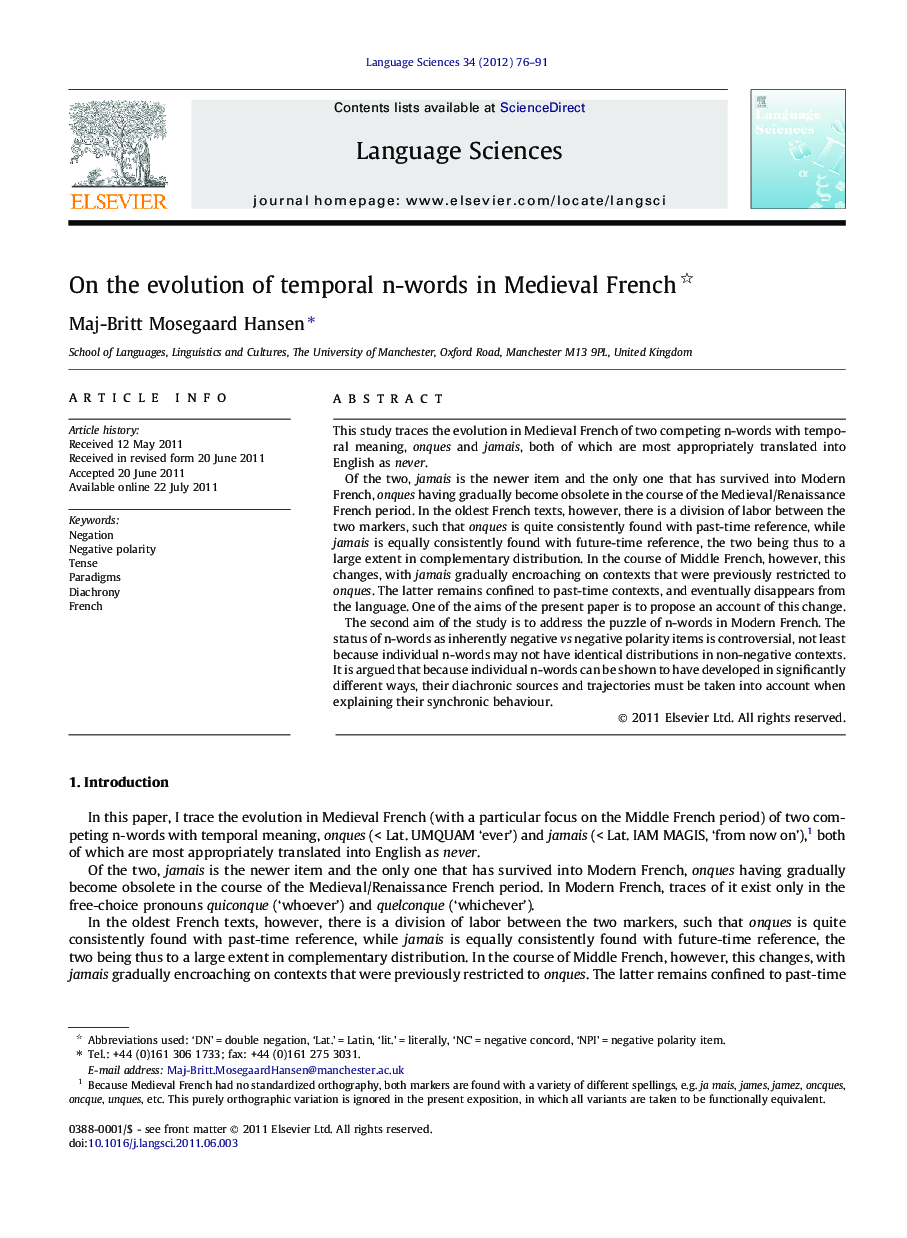| کد مقاله | کد نشریه | سال انتشار | مقاله انگلیسی | نسخه تمام متن |
|---|---|---|---|---|
| 1103400 | 953738 | 2012 | 16 صفحه PDF | دانلود رایگان |

This study traces the evolution in Medieval French of two competing n-words with temporal meaning, onques and jamais, both of which are most appropriately translated into English as never.Of the two, jamais is the newer item and the only one that has survived into Modern French, onques having gradually become obsolete in the course of the Medieval/Renaissance French period. In the oldest French texts, however, there is a division of labor between the two markers, such that onques is quite consistently found with past-time reference, while jamais is equally consistently found with future-time reference, the two being thus to a large extent in complementary distribution. In the course of Middle French, however, this changes, with jamais gradually encroaching on contexts that were previously restricted to onques. The latter remains confined to past-time contexts, and eventually disappears from the language. One of the aims of the present paper is to propose an account of this change.The second aim of the study is to address the puzzle of n-words in Modern French. The status of n-words as inherently negative vs negative polarity items is controversial, not least because individual n-words may not have identical distributions in non-negative contexts. It is argued that because individual n-words can be shown to have developed in significantly different ways, their diachronic sources and trajectories must be taken into account when explaining their synchronic behaviour.
► Onques disappeared due to changes in tense forms/usage; scope ambiguities; low functional load.
► Different n-words in French have developed in significantly different ways.
► The individual trajectories of n-words must be taken into account when explaining synchronic behaviour.
► Syntactic/functional paradigms are pragmatic entities, not linguistic entities.
► Paradigms are not internally coherent, and the notion of paradigmatic pressure has no predictive power.
Journal: Language Sciences - Volume 34, Issue 1, January 2012, Pages 76–91